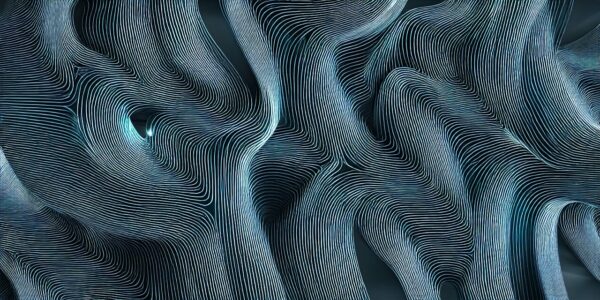I don't remember the last time I laughed reading a book but Dancing Naked in the Mind Field by Kary Mullis is special, just like the author himself. Well, actually the content and the author are not separated, as it is his autobiography.
A short bio of Kary: he got the Nobel Prize in Chemistry for the invention of of polymerase chain reaction (PCR), but that's not what made him special - he was quite a character, and I would say he was a proper nut - he believed, among other things, in reincarnation and astrology which he described in more detail in the book. Wikipedia even lists him as one of the people with the Nobelitis, the Nobel disease. Whatever can be said about him, for sure he has an open, curious, science-driven, analytical mind.
Without spoiling too much, here are some of the book fragments.
On controlling the skin resistance with mind:
The flow of electricity through a circuit is directly proportional to the voltage and indirectly proportional to the resistance. I put one electrode on each wrist and attached them to 9 volts. The resistance in my skin would range from about 14,000 ohms up to about 100,000. It would sometimes go higher or lower, but I was not able to control it at first. The salty fluids of my body were easy for electricity to flow through. The difficult part was my skin. I figured that the resistance between the two electrodes was mainly the resistance of my skin times two. I decided to learn how to control the resistance of my skin. By just fooling around, I discovered that if I wanted my resistance to go higher, I had to think about something really boring or meditative. If I closed my eyes and thought about floating on a dark featureless lake, my skin resistance would go up. The voltage meter reading occasionally went as high as 180,000 ohms. But if I looked at a picture of a naked woman in Playboy, whoosh, the reading dropped below 10,000.
On chemical experiments in school:
I became president of the Junior Engineering Technical Society (JETS), Al and I thought it would be fun to put on a science show for the elementary schools. [...]
We had a dramatic opening. A concoction with iodine and potassium perchlorate. It began with burning some alcohol, quietly heating and concentrating the other ingredients in a porcelain dish behind a crack in the curtains. When the eerie blue alcohol flame died out, the residue would blaze up into serious pyrotechnic action for a second and then there would be sparks till it was over. It always worked before. But when we did the show at A. C. Moore Elementary, my neighborhood grammar school, it didn’t. The blue flame wavered for a second, and then the whole thing exploded. Shards of the crucible blew all over the place. Everyone sat in complete awe of chemistry. I held my breath waiting for someone from the bloodstained front row to be carried backstage in the arms of my first-grade teacher. No one appeared. I walked tentatively onto the stage and started talking about Isaac Newton, checking out the front row for blood. I didn’t see any. When we were through, a boy with blond hair and a little blood on him came backstage with a small piece of glass that had hit him in the forehead. He wasn’t bothered by it. It was as if he’d caught a baseball after a home run. I took the piece of glass from him and asked him not to tell. He was a kid from my neighborhood. I knew he’d keep quiet.
On the police visit in Stockholm after he received the Nobel Prize:
Every morning I’d get up and go to lunch with the faculty of some university. Then I’d give a lecture and rush back to the hotel to dress for some formal event. Most of the time I behaved myself very well. There was only one time when I almost got arrested, and that was not entirely my fault. As a present, R. B. Haynes had given me a little hand-held laser. It projects a red dot on the first solid object in its path, no matter how far away that object is. It’s like pointing a very long finger. In the long dark winter mornings of Stockholm I couldn’t stop playing with it. I would sit in my window in the Grand Hotel and play with the Swedes. I’d shine the beam on the newspapers they were reading or on the sidewalk in front of them as they walked along. One morning a cab driver was smoking a cigarette, and I shined the beam directly in front of him. When he noticed it, he got up and returned to his cab, so I aimed it through the windshield onto his dashboard. I thought it was a funny thing to do until the police arrived.
On taking LSD with a friend:
My friend Eric, with whom I often did psychedelic drugs, was a strategic air command pilot. In the air, he was responsible for one of the keys required to arm the nuclear bombs. If war started, he had partial responsibility for dropping them. One day he realized he couldn’t, and wouldn’t, do it. They gave him an honorable discharge. Psychiatric problems— he wouldn’t help blow up the world.
Recommended.

